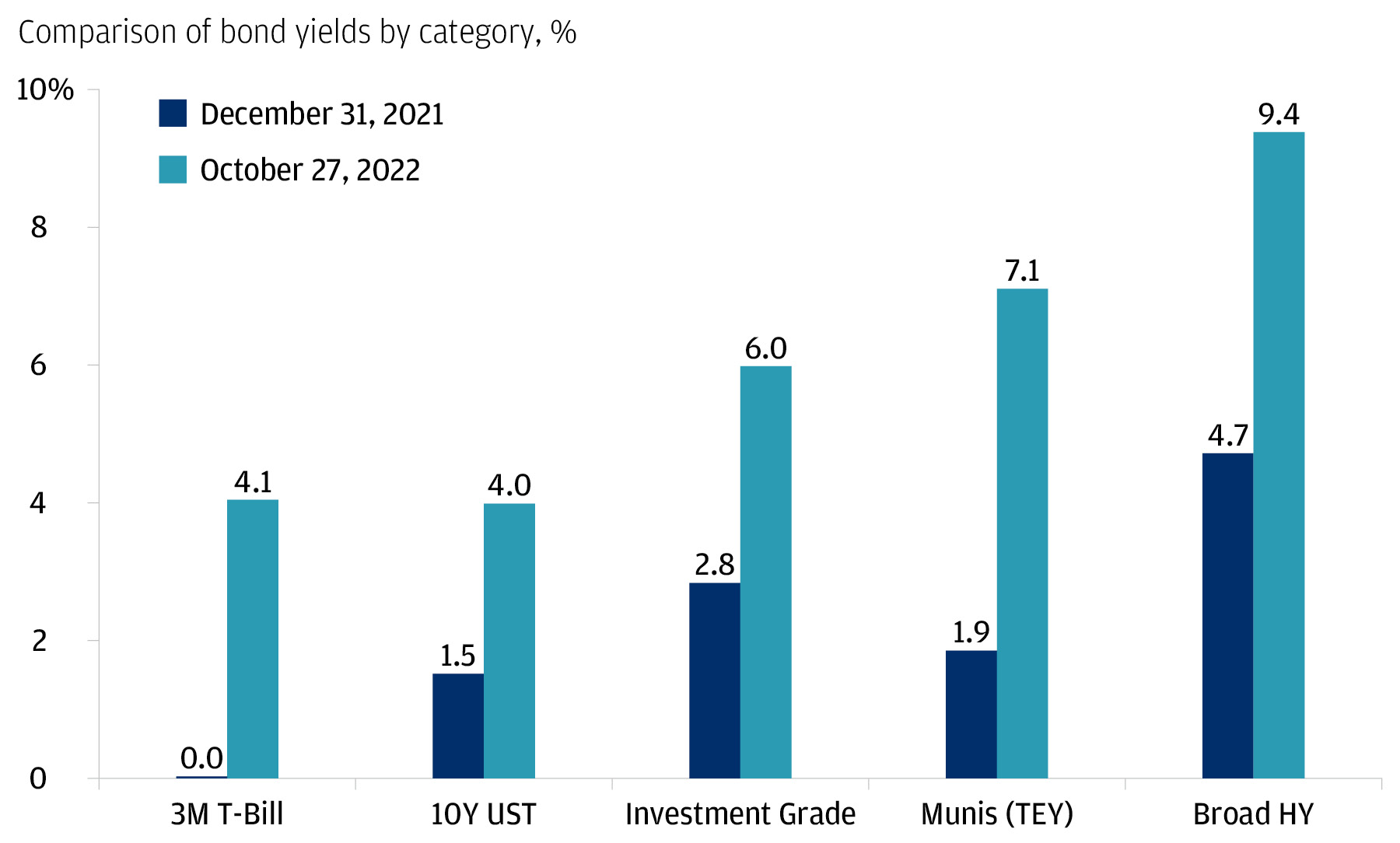

Finance
What Happens When You Inherit Stocks
Published: January 18, 2024
Discover what happens when you inherit stocks and how it can impact your finances. Gain insights into the financial implications and potential opportunities that come with inheriting stocks.
(Many of the links in this article redirect to a specific reviewed product. Your purchase of these products through affiliate links helps to generate commission for LiveWell, at no extra cost. Learn more)
Table of Contents
Introduction
When a loved one passes away, their financial assets, including stocks, are often transferred to their heirs through the process of inheritance. Inheriting stocks can be both a financial blessing and a source of confusion for the beneficiaries. If you find yourself in the position of inheriting stocks, it’s important to understand what happens and how to navigate this new territory.
Inheriting stocks means that you are now the owner of the shares previously held by the deceased individual. These stocks can be from various companies and industries, and their value may have appreciated or depreciated over time. It’s important to have a clear understanding of the steps involved in the transfer of ownership, the tax implications, and how to manage and potentially sell the inherited stocks.
In this article, we will explore the journey of inheriting stocks and provide you with the necessary knowledge to make informed decisions regarding your inherited assets. Whether you are a novice investor or have some experience in the stock market, understanding the intricacies of inherited stocks will equip you with the confidence to handle this financial transition.
Before we dive into the details, it’s important to note that while this article provides general information, it’s always advisable to consult a financial advisor or tax professional who can provide personalized guidance based on your specific situation.
Understanding Inherited Stocks
When you inherit stocks, it’s crucial to have a clear understanding of the assets you have received. Stocks represent partial ownership in a company, and as a new stockholder, you become entitled to the associated rights and benefits.
Here are a few key points to keep in mind when it comes to understanding inherited stocks:
- Share Ownership: Inheriting stocks means that you now own a portion of the company that issued those shares. The number of shares you receive and the percentage of ownership will depend on the specific provisions outlined in the will or estate plan.
- Dividends: As a shareholder, you may be entitled to receive dividends. Dividends are a portion of the company’s profits distributed to shareholders in the form of cash or additional shares. The amount of dividends you receive will depend on the company’s performance and dividend policy.
- Voting Rights: Inherited stocks typically come with voting rights, allowing you to participate in the company’s decision-making processes. This may include voting on matters such as electing the board of directors or approving significant corporate actions.
- Risk and Reward: Just like any investment, inherited stocks come with risk. The value of stocks can fluctuate due to various factors such as market conditions, economic trends, and company performance. It’s important to understand that while there is potential for financial gain, there is also the risk of losing value.
- Ownership Responsibilities: As an owner of inherited stocks, you have certain responsibilities. These include staying informed about the company’s performance, reading shareholder communications, and making informed decisions regarding voting matters that may affect the company and its direction.
By understanding these key aspects of inherited stocks, you can better navigate your ownership rights and responsibilities. The next step is to familiarize yourself with the transfer of ownership process and the potential tax implications that come with the inheritance of stocks, which we will explore in the following sections.
Transfer of Ownership
When you inherit stocks, the transfer of ownership needs to be officially documented and processed. This ensures that the stocks are transferred from the deceased person’s name to your own. The specific steps involved in the transfer of ownership may vary depending on your jurisdiction and the financial institution holding the stocks.
Here are some general guidelines to help you navigate the transfer of ownership process:
- Obtain the necessary documentation: You will need to gather the relevant documents, such as the death certificate of the deceased and any legal documents related to the inheritance, such as the will or estate plan. These documents will be required by the financial institution to initiate the transfer process.
- Contact the financial institution: Reach out to the financial institution or brokerage firm where the stocks are held. Inform them about the death of the stockholder and your intention to transfer ownership. They will guide you through their specific procedures and requirements.
- Provide proof of inheritance: You may be required to provide documentation proving your status as the rightful heir of the stocks. This can include a copy of the will, probate court documents, or a letter of administration proving your authority to act on behalf of the deceased’s estate.
- Complete the necessary paperwork: The financial institution will provide you with the required forms to initiate the transfer of ownership. Fill out the forms accurately, providing all the necessary information and attaching the required supporting documents.
- Review and confirm the transfer: Once you have submitted the necessary paperwork, the financial institution will review and process the transfer. They may contact you if any additional information or documentation is required. It’s important to review the transfer details carefully before finalizing the process.
It’s worth noting that the transfer of ownership process can take time, so it’s important to be patient and follow up with the financial institution as needed. Once the transfer is complete, you will officially become the owner of the inherited stocks and can start reaping the benefits and managing the investment.
Next, let’s delve into the tax implications of inheriting stocks, as it’s essential to understand how this inheritance may impact your tax obligations.
Tax Implications
When it comes to inheriting stocks, it’s important to be aware of the potential tax implications that may arise as a result of your inheritance. While this article provides a general overview, it’s recommended to consult with a tax professional who can provide personalized guidance based on your specific situation and jurisdiction.
Here are some key points to consider regarding the tax implications of inheriting stocks:
- Step-up in Basis: One significant tax advantage of inheriting stocks is the step-up in basis. When stocks are inherited, their cost basis is adjusted to the value of the stocks at the date of the owner’s death. This means that if you decide to sell the inherited stocks, you will only be responsible for taxes on any gains that occur after the date of inheritance, rather than the original purchase price.
- Tax on Dividends: When you receive dividends from the inherited stocks, they may be subject to income tax. The tax rate will depend on your individual tax bracket and the type of dividends received, whether qualified or non-qualified.
- Capital Gains Tax: If you decide to sell the inherited stocks at a later date, any capital gains realized may be subject to capital gains tax. The tax rate for capital gains will depend on the length of time you held the stocks before selling, your income level, and your tax jurisdiction.
- Estate Tax: In some cases, the estate of the deceased individual may be subject to estate taxes. However, for most individual heirs, the estate tax is not a concern, as it typically applies to larger estates. It’s crucial to consult with a tax professional to determine if any estate tax obligations exist.
- Gift Tax: If the deceased individual gifted the stocks to you before their passing, there may be gift tax implications. However, as the recipient of the gift, you generally wouldn’t be responsible for paying gift tax. The donor is typically responsible for any potential gift taxes.
It’s important to keep detailed records of the inherited stocks, including their value at the date of inheritance, any dividends received, and any subsequent sales. These records will be valuable when it comes time to report and calculate any taxable events.
Remember, tax laws can be complex and subject to change, so it’s advisable to consult with a qualified tax professional to ensure compliance with applicable tax regulations and to optimize your tax strategy.
Now that we have covered the tax implications, let’s explore how dividends and capital gains play a role in managing inherited stocks.
Dividends and Capital Gains
When you inherit stocks, you become entitled to any dividends that are distributed by the company. Dividends are a portion of the company’s profits that are paid out to shareholders. They can provide a regular source of income and contribute to the overall return on your investment.
Here are a few key points to know about dividends when managing inherited stocks:
- Dividend Types: There are two main types of dividends: cash dividends and stock dividends. Cash dividends are paid out in the form of cash directly to shareholders. Stock dividends, on the other hand, are paid out in the form of additional shares of stock. The company’s board of directors determines the dividend policy and the frequency of dividend distributions.
- Reinvestment Option: Some companies offer a dividend reinvestment program (DRIP), allowing shareholders to automatically reinvest their dividends into additional shares of stock without incurring brokerage fees. This can be a convenient way to compound your returns and gradually increase your ownership stake in the company.
- Capital Gains: In addition to dividends, inherited stocks can also generate capital gains. Capital gains occur when you sell the inherited stocks at a higher price than their original basis. Depending on your jurisdiction and the holding period, capital gains may be subject to capital gains tax.
- Timing of Dividends and Sales: It’s important to be aware of the timing of dividend distributions and any potential sales of inherited stocks. Dividends are typically paid out on a predetermined schedule, such as quarterly or annually. If you plan to sell your inherited stocks, it may be beneficial to coordinate the sale after the ex-dividend date to ensure you receive the dividend payout.
- Reinvestment vs. Cash Flow: When managing inherited stocks, you’ll need to decide whether to reinvest the dividends to purchase more shares or to take them as cash flow. This decision will depend on your investment goals, tax considerations, and personal financial circumstances.
It’s important to stay informed about the company’s financial health and dividend policies. Reading shareholder communications, such as annual reports and company announcements, can provide valuable insights into the company’s strategy and future prospects.
Whether you choose to reinvest dividends or take them as cash, they can contribute to the overall growth and potential returns of your inherited stock portfolio. Keep in mind that dividends and capital gains are subject to taxation, so it’s advisable to consult with a tax professional to understand the tax implications before making any decisions.
Now that we have explored dividends and capital gains, let’s discuss how to effectively manage inherited stocks for long-term growth and financial stability.
Managing Inherited Stocks
Managing inherited stocks requires careful consideration and a long-term mindset. Whether you are new to investing or have prior experience, here are some key factors to consider when managing your inherited stock portfolio:
- Evaluate your financial goals: Take some time to assess your overall financial goals and how the inherited stocks fit into your investment strategy. Consider factors such as your risk tolerance, time horizon, and income needs. This will help guide your decision-making and determine whether to hold, sell, or diversify your inherited stocks.
- Diversification: Diversification is a risk management strategy that involves spreading your investments across different asset classes and sectors. It helps reduce the impact of any single investment’s performance on your overall portfolio. Consider diversifying your inherited stock portfolio by adding other investments, such as bonds, mutual funds, or exchange-traded funds (ETFs).
- Stay informed: Keeping abreast of the financial markets, industry trends, and company news is vital when managing inherited stocks. Regularly review company reports, earnings announcements, and industry analysis to understand the fundamental factors that may impact the value of your stocks.
- Consult with a financial advisor: If you are unsure about how to manage your inherited stocks or need guidance on investment strategies, consider working with a financial advisor. They can provide personalized advice based on your financial situation and help develop an investment plan that aligns with your goals.
- Regular portfolio review: Conduct periodic reviews of your inherited stock portfolio to assess its performance and make any necessary adjustments. Rebalance your investments as needed to maintain the desired asset allocation and risk level.
- Consider tax-efficient strategies: To minimize the tax impact of managing inherited stocks, explore tax-efficient strategies such as tax-loss harvesting, where you sell underperforming stocks to offset gains, or tax-efficient funds that aim to minimize taxable distributions.
Remember, investing involves risks, and the value of stocks can fluctuate. It’s essential to have a realistic perspective and a long-term investment horizon when managing inherited stocks. Don’t be swayed by short-term market movements or succumb to emotional decision-making. Instead, focus on your financial goals and make informed decisions based on diligent research and analysis.
Lastly, if you are uncomfortable managing the inherited stocks yourself or prefer a hands-off approach, you have the option to enlist the services of a reputable investment management firm that can manage your portfolio on your behalf.
Now let’s explore the process of selling inherited stocks and the considerations to keep in mind.
Selling Inherited Stocks
There may come a time when you decide to sell your inherited stocks. Whether it’s to realize gains, rebalance your portfolio, or meet financial needs, selling inherited stocks requires careful consideration. Here are some important factors to keep in mind:
- Understand the tax implications: Selling inherited stocks may trigger capital gains tax obligations. Remember, the cost basis of the stocks is adjusted to their value at the date of inheritance, which means you will only be responsible for taxes on any gains that occur after that date. Consult with a tax professional to understand the tax consequences and plan accordingly.
- Timing the sale: Consider the timing of your sale, taking into account any potential capital gains tax implications and dividend distributions. If you sell the stocks shortly before a dividend payment date, you may miss out on the dividend payout.
- Market conditions: Assess the current market conditions and the company’s performance before deciding to sell. Selling during a market downturn may result in selling at a loss, while selling during a bullish market may allow you to capture greater gains.
- Consult with a financial advisor: If you’re unsure about when or how to sell your inherited stocks, seek guidance from a financial advisor. They can help you evaluate different strategies, assess your financial goals, and provide advice on the optimal timing and method of selling.
- Consider diversification: Selling inherited stocks can free up capital that you can then reinvest in a more diversified portfolio. Assess your overall investment strategy and consider the benefits of diversifying your holdings across different asset classes or sectors.
- Be mindful of transaction costs: Consider any transaction costs or brokerage fees associated with selling the inherited stocks. These costs can impact your overall returns, so it’s important to factor them into your decision-making process.
When selling inherited stocks, it’s important to approach the decision with a long-term perspective and avoid making hasty decisions based solely on short-term market fluctuations. Review your overall financial goals and portfolio strategy to determine if selling aligns with your objectives.
Additionally, remember that selling inherited stocks is a personal decision, and there is no one-size-fits-all approach. It’s important to take your financial circumstances, risk tolerance, and investment goals into account when deciding whether to sell or hold on to your inherited stocks.
Finally, always consult with a financial advisor or tax professional who can provide personalized guidance based on your specific situation and assist you in making informed decisions about selling your inherited stocks.
Now, let’s summarize what we’ve covered in this article about inheriting stocks and provide a concluding thought.
Conclusion
Inheriting stocks can be both a financial opportunity and a responsibility. Understanding the intricacies of the transfer of ownership, tax implications, dividends, and capital gains is essential for effectively managing your inherited stock portfolio. By following the steps outlined in this article, you can navigate this process with confidence and make informed decisions aligned with your financial goals.
Remember to evaluate your financial goals and consider diversification when managing inherited stocks. Stay informed about the companies you hold stocks in, and consult with professionals such as financial advisors or tax experts when needed. Regularly review your portfolio, and don’t shy away from considering tax-efficient strategies to optimize your returns. Whether you choose to hold onto your inherited stocks or make the decision to sell, ensure that it aligns with your overall investment strategy and long-term objectives.
While this article has provided a comprehensive overview, it’s always advisable to seek personalized advice from professionals who can offer insights based on your specific circumstances. Investing in stocks carries risks, and the performance of stocks can be influenced by various factors. Stay disciplined, emotionally balanced, and focus on long-term growth and financial stability.
Managing inherited stocks can be a rewarding experience, allowing you to build financial security and potentially grow your wealth. Remember to consult with experts, stay informed, and make decisions that align with your unique financial situation and goals.
With the knowledge and insights gained from this article, you are now equipped to navigate the world of inherited stocks and make informed decisions as you continue your financial journey.
Happy investing!














